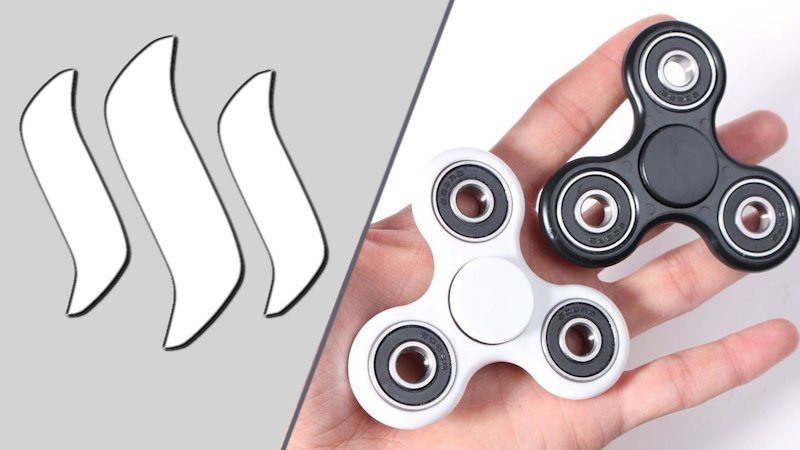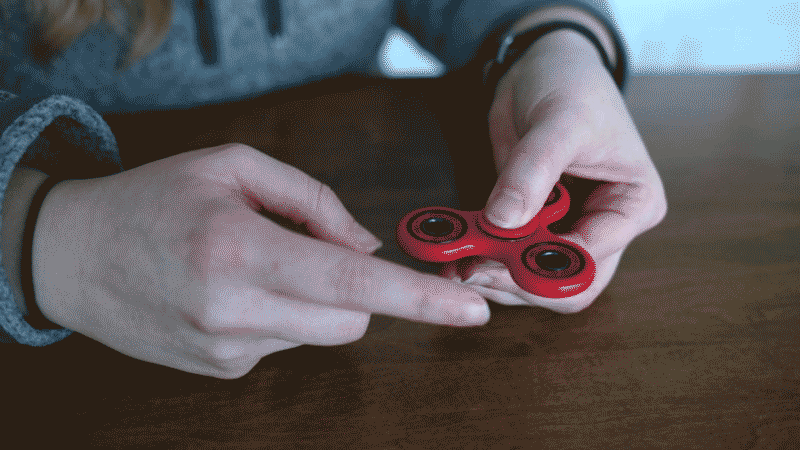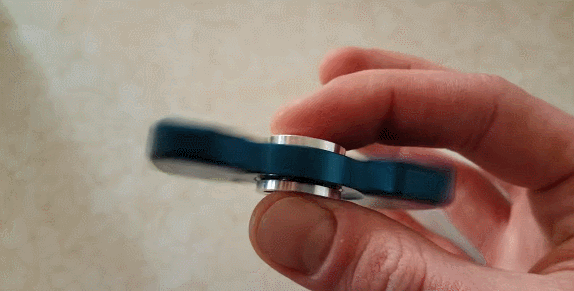
Fidget Spinners are the hype product at the moment. They're everywhere on social media, everybody is talking about it, young teens fight over it and some schools have even banned them already.
They are small toys that don't really do much - you can spin and twist them, but that's about it.
Everyone fidgets: whether that's playing with our hair, nails, fidgeting with our clothes or playing with small items like pens - it's a natural behaviour, and we don't even think about it.
Fidgeting is not a bad thing - nobody stays completely still for a long time, that would feel and look unnatural to us.
But some fidget spinners are actually marketed to release stress and help with disorders like ADHD, autism or anxiety - is there any scientific proof behind that?!

There are different theories behind the potential benefits of fidgeting:
For one, they are a great distraction.
They keep parts of the brain busy that would otherwise interrupt you with random thoughts.
Fidgeting also helps calm people down and releases stress.
You have something to do with your hands and can bring your thoughts in order while releasing nervous tension with your fingers.
Another theory states that body movements are a part of the thinking process.
Studies have proven that small physical movements can improve cognitive activities: for example doodling when listening or thinking.
A different approach is that spinning the little toy in your hands acts like a ritual.
Repetitive motions like clicking a pen can be comforting and calming.
Another aspect might be emotional attachment.
Humans (and especially kids) easily get emotionally attached to items like favorite toys, favorite jewelry. etc.
A fidget spinner is a small, fun item that you can carry everywhere with you - so a perfect object for an emotional connection.

All of these benefits could be plausible, but as long as no studies with actual ADHD/autism patients and fidget spinners have been conducted, we can only guess.
Sensory toys like stress balls or fidget cubes have been around for a long time and are sometimes even used by therapists, so there is definitely some therapeutic effects.
But still, doctors say that fidget spinners are not an effective way to treat autism or ADHD.
"They're a toy, and not so much a treatment" says David Anderson, senior director of the ADHD and Behavior Disorders Center at the Child Mind Institute in New York.
"So the great thing about fidget spinners is that they've brought the discussion for what works for ADHD or what might work for anxiety or stress relief to the forefront, which is great for us to have. The only issue is they have about as much scientific evidence for stress relief or for treatment of anxiety and ADHD as a pet rock.(...) So the thing is there's no psychologically recommended gadget. There are only gadgets that fall in line with scientifically-based psychological principles. (...) There's no universal recommendations of a particular toy for stress relief or a particular object for stress relief. Fidget spinners have absolutely no scientific studies behind them, showing any sort of effectiveness in treating this."-David Anderson
Scott Kollins, clinical psychologist and professor at Duke University states that "There's lots of similar toys, just like there's lots of other games and products marketed toward individuals who have ADHD, and there's basically no scientific evidence that those things work across the board."
"It's important for parents and teachers who work with kids who have ADHD to know that there are very well studied and documented treatments that work, and that they're out there, so there's not really quick and easy fixes like buying a toy. It's important that people don't get into trying these fads when we do have treatments that can help these kids."-Scott Kollins
Julie Schweitzer, director of the Attention, Impulsivity and Regulation program at the UC Davis MIND Institute, added that there is also no evidence that fidget spinners help with ADHD.
“There are other ways of doing it than these toys. I can’t say that they for sure don’t work, but there’s no evidence to support that they do and it’s obvious they’re going to be distracting to other people.”-Julie Schweitzer

What's your opinion about fidget spinners - amazing and fun or useless and distracting?!
Images: 1, 2, 3, 4, Sources: 1, 2, 3, 4, 5, 6
- Instagram -

© Sirwinchester
